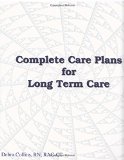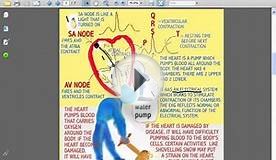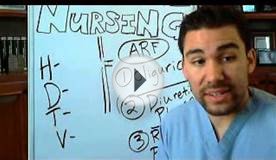Nursing Care Plan for Anemia
 Anemia is the reduction in red blood cells (erythrocytes) thus decreasing the oxygen carrying capacity of the blood due to the following (1) excessive blood loss (2) deficiencies and abnormalities of RBC production (3) Excessive destruction of RBC.
Anemia is the reduction in red blood cells (erythrocytes) thus decreasing the oxygen carrying capacity of the blood due to the following (1) excessive blood loss (2) deficiencies and abnormalities of RBC production (3) Excessive destruction of RBC.
Common Symptoms of Anemia
These symptoms appear in most types of anemia:
- pale skin
- dizziness
- fatigue
- headaches
- irritability
- low body temperature
- numb/cold hands or feet
- rapid heartbeat
- shortness of breath
- weakness
- chest pain
Types of Anemia
Different types of anemia have different causes and symptoms.
Iron Deficiency Anemia: Iron deficiency is one of the most common causes of anemia, especially in women. In the U.S. alone, twenty million women suffer from iron deficiency anemia. Iron deficiency causes insufficient hemoglobin production which, in turn, causes anemia and anemia symptoms.
Sickle Cell Anemia: Sickle cell anemia, or sickle cell disease, is one of the hereditary causes of anemia. Most often seen in people of African descent, sickle cell anemia is characterized by the production of rigid, sickle-shaped red blood cells. These abnormal sickle cells break down faster then normal red blood cells, resulting in a chronic shortage of red blood cells and anemia symptoms.
Sickle cell anemia is a form of hemolytic anemia, which describes types of anemia caused by the rapid destruction of red blood cells.
Pernicious Anemia: Certain types of anemia are referred to as megaloblastic, or vitamin deficiency anemia. Pernicious anemia is caused by an inability of the intestines to absorb sufficient amounts of vitamin B12, which is required in the production of red blood cells.
Pernicious anemia symptoms include vision problems, memory loss, difficulty walking and numb hands and feet, as well as the more common anemia symptoms.
Risk factors for pernicious anemia include a family history of pernicious anemia, Scandinavian or European ancestry or a history of autoimmune endocrine disorders.
Vitamin B12 injections are the standard pernicious anemia treatment. Oral vitamin B12 supplements may also be used as pernicious anemia treatment, but they’re not as efficient as B12 injections.
Folic Acid Deficiency Anemia: Folic acid deficiency anemia, like pernicious anemia, is a megaloblastic anemia. Folic acid is essential for healthy blood and a healthy nervous system. A folic acid deficiency during pregnancy can cause birth defects.
Folic acid supplements form the basis of folic acid anemia treatment. Anemia treatment also includes eating a diet high in folic acid, including such foods as:
- beans and legumes
- citrus fruits and juices
- dark green leafy vegetables
- pork
- poultry
- shellfish
- wheat bran
Thalassemia: Causes of anemia often include genetic mutations. Thalassemia is one of the genetically inherited types of anemia. Thalassemia occurs when the body’s genes, which are responsible for proper hemoglobin production, become damaged or mutated. Like sickle cell anemia, thalassemia is one of the hemolytic anemia types.
The journal is indexed and abstracted in: Academic...



|
Complete Care Plans for Long Term Care Book (LTCS Books)
|

